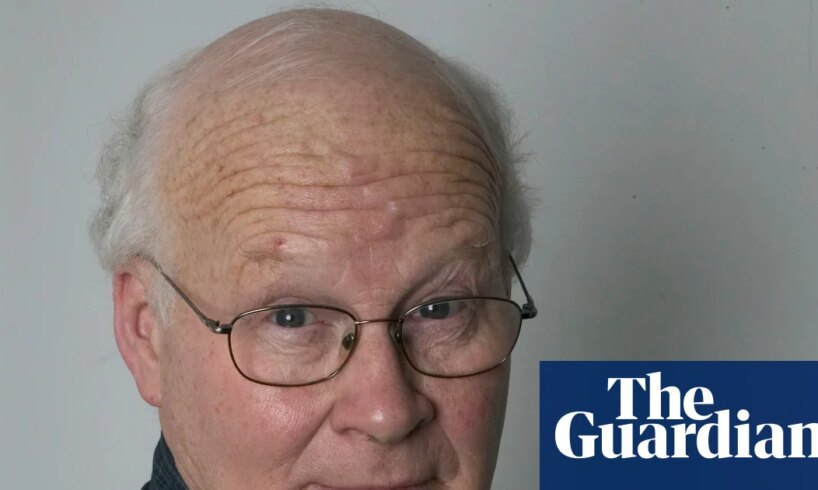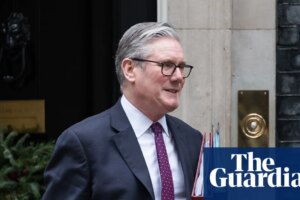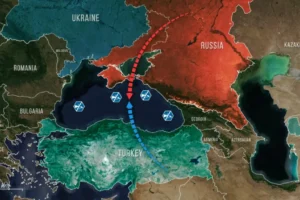
The journalist David Gow, who has died aged 80 from a heart attack, served as the Guardian’s authoritative education editor, European business editor, and Germany correspondent. After his time on the paper he remained active in considering social and economic issues from a leftwing perspective.
David started his career at the Scotsman as a graduate trainee in 1969. The following year, Edward Heath’s Conservatives came to power and Britain started negotiating entry to the European Economic Community. David was appointed the paper’s first European correspondent, then labour correspondent, and later its London editor over a period interrupted by a spell at Thames Television’s Weekend World.
Britain joined the EEC in 1973, and on visits to Brussels, David met Sue Lewis, a member of the cabinet of George Thomson, one of Britain’s European commissioners. She had worked for Harold Wilson at 10 Downing Street; David was later to resist suggestions in Labour circles that he might want to be an aide for one of Wilson’s successors, Neil Kinnock. In 1980 David and Sue married and had a daughter, Gemma.
When David joined the Guardian in 1989, he covered the important issues of education, and developments in Germany at the time of the collapse of the Soviet Union in 1991. He was a gifted linguist and his fluent German helped him attract a rich network of contacts. On returning to Britain, and after a brief time as Wales correspondent, he joined the paper’s business and industrial desk in London. From there he moved to Brussels and consolidated his reputation as an expert on European business.
David Gow with Peter Hain at the 1999 TUC conference in Brighton. Photograph: Martin Argles/The Guardian
Sue died of cancer in 2001, and not long after, David was asked to fill in for the Guardian’s Wall Street correspondent in New York when she took maternity leave. It was an extraordinary time – the aftermath of the 9/11 attacks.
I knew Gayle, the widow of John Cairncross, a literary scholar labelled the “fifth man” in the Cambridge spy ring of Burgess, Maclean, Philby and Blunt. He had been given immunity and died in 1995. Gayle (nee Brinkerhoff) had recently returned to New York to stay with her brother. David told me that he did not know many people there, so I suggested he might get in contact with her, thinking they might get on.
They did, and after a courtship often conducted by transatlantic emails, they married in 2002. From 2004 until retiring in 2012 he continued as European business editor, based in Brussels.
David Gow in Scotland earlier this year
Born in Edinburgh, David had an English mother, Eve (nee Mumford), who served in the Women’s Royal Air Force during the second world war, when she met his father, Robin, a Scot, who worked for an insurance company. David grew up in York, and won a scholarship to St Peter’s school. From there, in 1964 he went to Worcester College, Oxford, and gained a degree in French and German.
He and David Leigh, eventually the Guardian’s investigations editor, were fellow trainees on the Scotsman, and for a while shared a flat off Edinburgh’s Royal Mile. David Gow had been a neighbour of Hamish Henderson, the folklorist and poet, and he was among a number from Scots politics and academia who would drop in and conduct swirling debates over devolution and nationalism.
David briefly flirted with the Trotskyite Labour League and its contentious leader, Gerry Healy. He contributed to the Red Paper on Scotland, edited in 1975 by a young Gordon Brown and published by Edinburgh University Students’ Publications Board. David concluded his chapter, called Devolution and Democracy: “The size and scale of the problems facing mankind, and the fact of international communication and mutual economic dependence will remain, but the concentration of the power to deal with those issues must be seized from the hands of the imperialists and given to the people in their rich local, regional, and national variety.”
He was a committed Europhile: looking back on exchange visits, he remarked: “For my generation, going to Europe in our teens was a cultural awakening.” Many years later, in a passionate piece for the European Movement, he wrote: “I had a dream of Europe. Brexit wrecked it.” On retiring, David spent some time at Aumelas, a village near Montpellier, and came to view his European identity as: “republican, lay, socially horizontal.” Britain, on the other hand, he condemned as: “vertical, monarchist, socially riven.”
Power … must be seized from the hands of the imperialists and given to the people in their rich local, regional and national variety
Proud of his Scottish heritage, David suggested to Gayle, an opera singer and teacher of young performers, that they make their main base in Edinburgh, and they bought a flat in the New Town, a short walk from the city’s Botanic Garden, which he joined as a member. His knowledge of plants was encyclopedic, and he delighted in engaging in discussions about gardening, sport and classical music. He would light up any room sharing his enthusiasms or responding to the news with original observations.
David pursued his work as consultant editor to European thinktanks including the Jacques Delors Centre in Berlin, and as a trustee of the Federal Trust, studying the interactions between regional, national, European and global levels of government.
A student of the Enlightenment, he was a trustee of the David Hume Institute, focused on the understanding of the relationship between society and the economy. He also co-founded the Sceptical Scot website, a non-partisan forum inviting “passionate, informed debate for all who care about Scotland”. In recent years David was elected a fellow of the Royal Society of Edinburgh and to the executive committee of the National Union of Journalists.
After buying a lodge in St Fillans, Perthshire, he delighted in creating the surrounding garden and looking after Cosmopolitan Villager, a blog concentrating on community and Scottish issues.
He is survived by Gayle, Gemma, three grandchildren, Nicole, Leah and Shannay, three great-grandchildren, and his brother, Rod.
David Richard Gow, journalist and commentator, born 7 April 1945; died 3 November 2025





